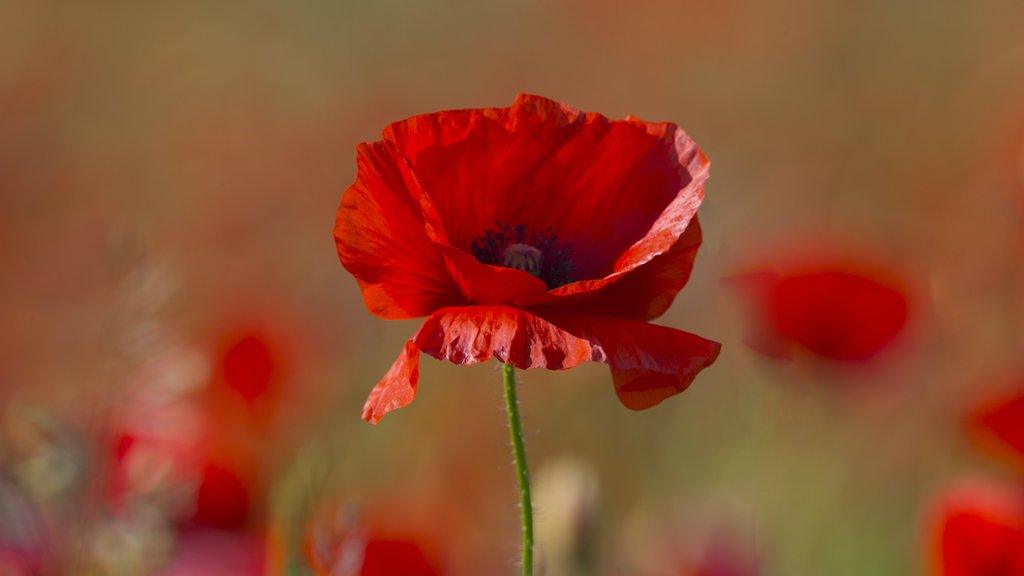Remembrance Day: Wales falls silent to honour war dead
- Published
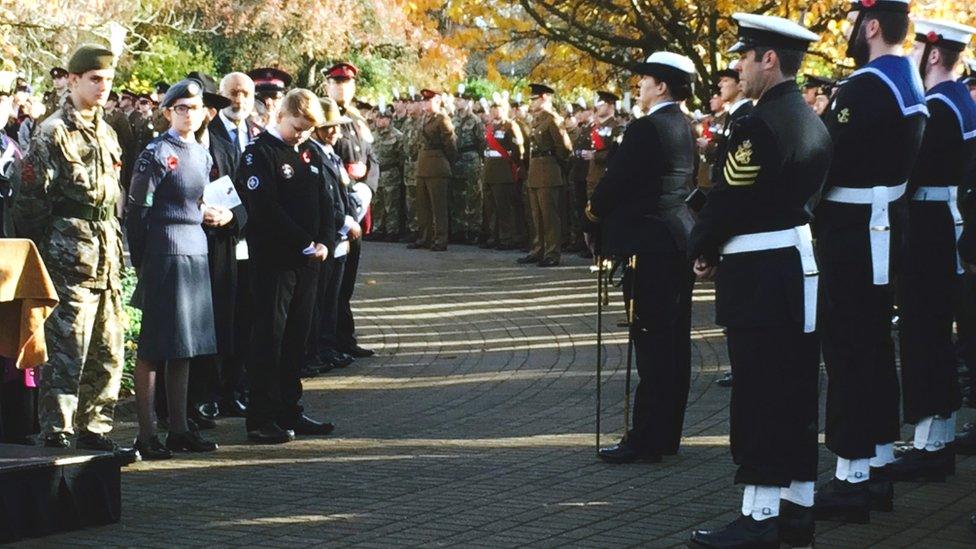
A service was held at the Welsh National War Memorial in Alexandra Gardens, Cardiff
Services have been held across Wales to honour those killed in war as part of Remembrance Sunday.
The national service was held in Cardiff, with a march from King Edward VII Avenue to the Welsh National War Memorial in Alexandra Gardens.
Among the other towns and cities holding services were Aberystwyth, Bangor, Swansea, Wrexham and Newport.
Volunteer Brian Thomson, 64, from Holyhead, Gwynedd, represented the RNLI at the service at London's Whitehall.
First Minister Carwyn Jones was among those attending the event in Cardiff, while Welsh Secretary Alun Cairns was at a ceremony at the Cenotaph in London.
Mr Jones said: "It is important we take the opportunity to pay tribute to those who lost their lives, paying the ultimate price for our freedom.
"Those who fought bravely for our futures must never be forgotten."
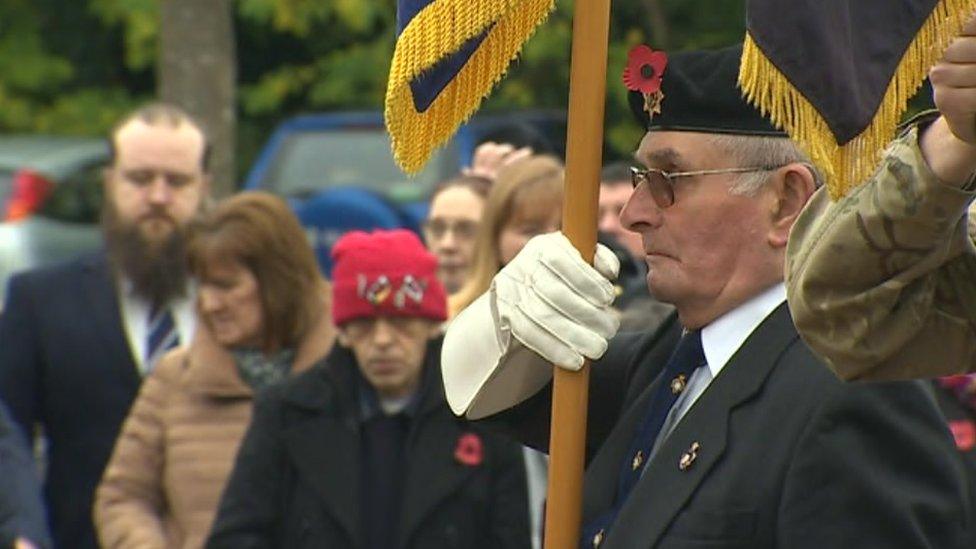
Ex-servicemen pay their respects at a remembrance service in Bangor
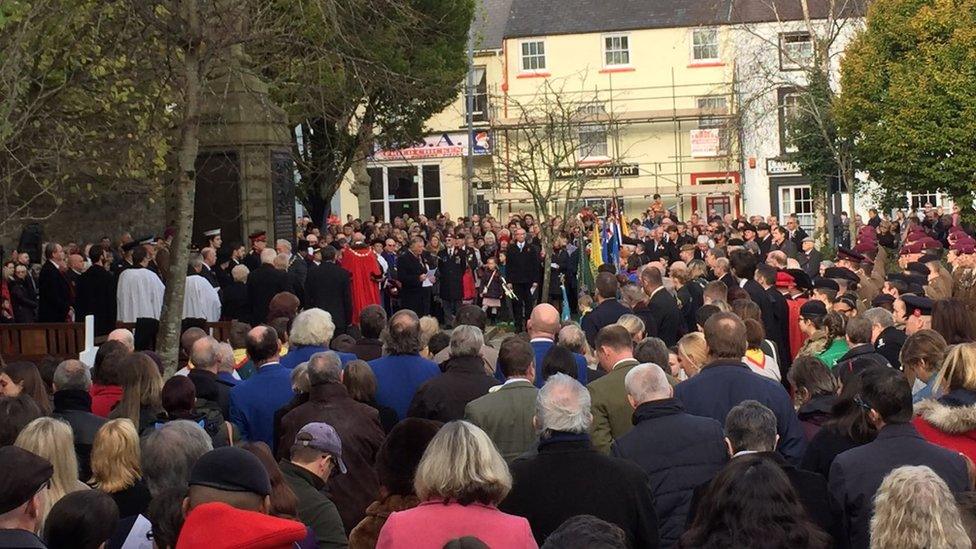
A remembrance service was held at Haverfordwest, Pembrokeshire
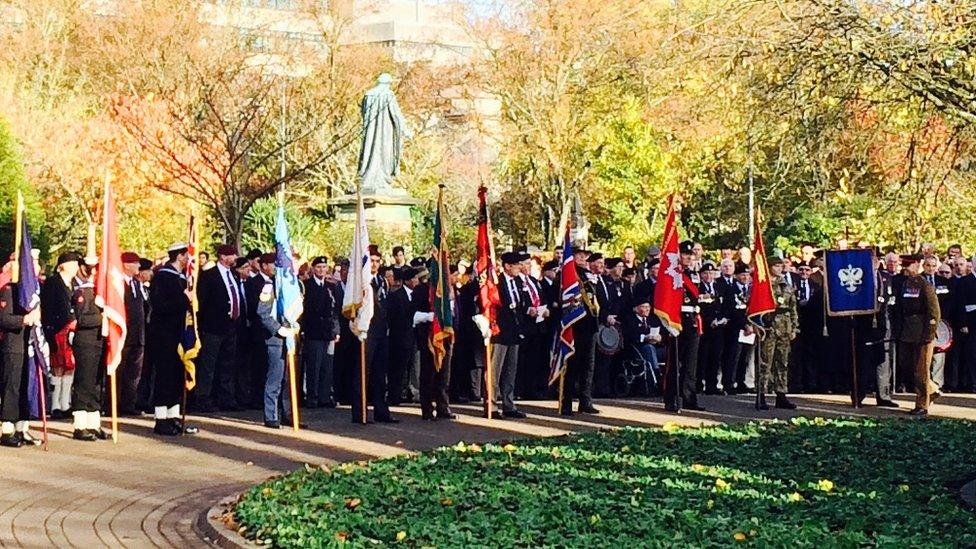
Service at Cardiff's National War Memorial
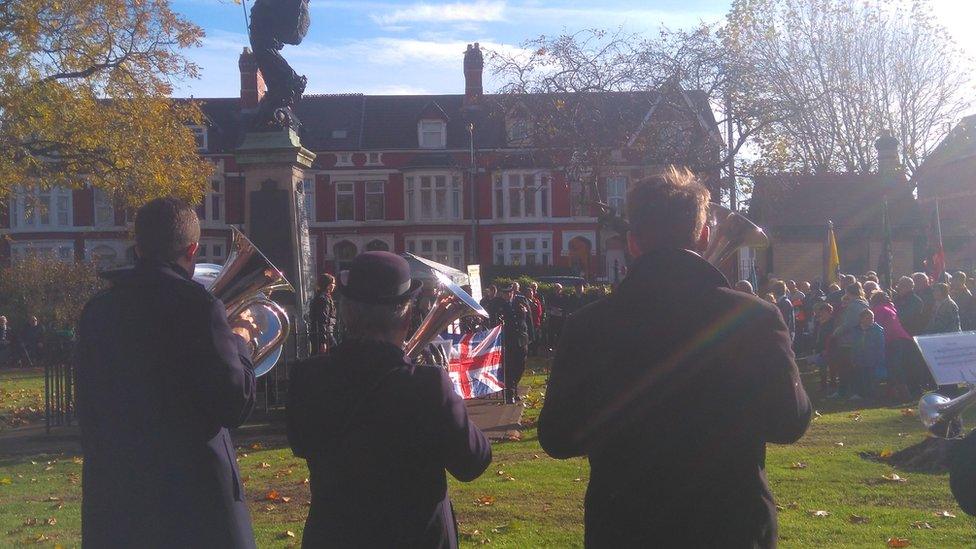
Remembrance service in Grangetown
Among the crowd in Cardiff was couple Robert and Wendy Barnett, from Rhoose, Vale of Glamorgan, who are both former members of the armed forces.
"It's important to remember former colleagues at this time," said Mr Barnett, a former member of the Royal Logistic Corps.
Retired colonel Tina Donnelly said remembrance services are vital to honour those killed or injured in action.
For the third year, falling poppies will be projected on to Elizabeth Tower, which houses Big Ben in London, from dusk on Remembrance Sunday.
In addition, this year will see a series of war poems alongside them from the poet laureate or national poet from the four nations of the United Kingdom.
National poet of Wales, Caernarfon-based Ifor ap Glyn, will see his poem Terasau projected as part of this.
Mr Glyn said: "Terasau was inspired by a visit to the military cemeteries of the Somme, the humbling scale of loss and the near impossibility of 'knowing' the men who lie there."
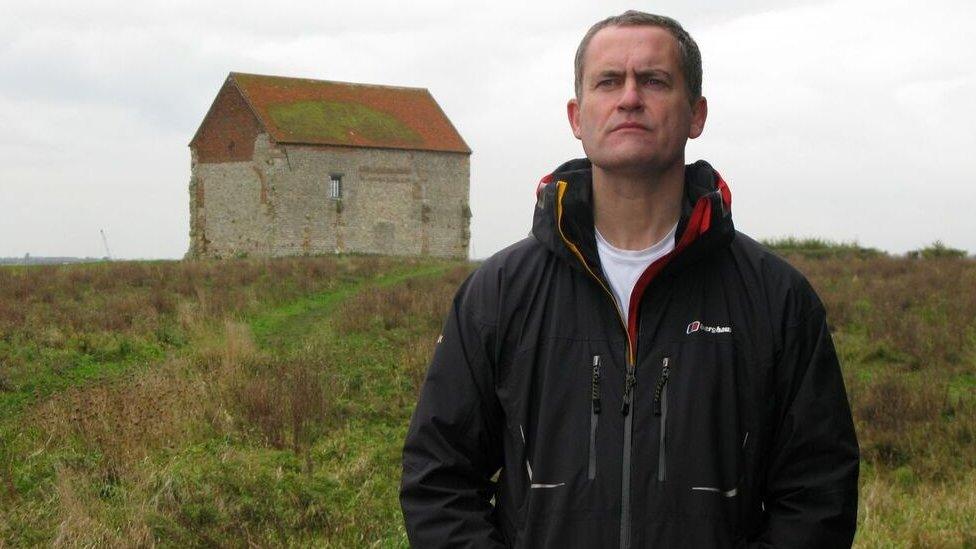
Ifor ap Glyn was the Welsh language Children's Laureate in 2008-09
On Friday, Wales fell silent on Armistice Day, which marks the ending of World War One, at the 11th hour of the 11th day of the 11th month in 1918.
The Royal British Legion's area manager for Wales, Ant Metcalfe, said: "This year marks the centenary of the Battle of the Somme, which ended on 18 November 1916.
"The impact of the battle was felt deeply in every community in Wales, particularly the casualties at the battle of Mametz Wood, where around 4,000 men from the 38th (Welsh) Division died or were injured.
"The Royal British Legion ensures the memories of those who have made the ultimate sacrifice for their country will live on."
- Published13 November 2016
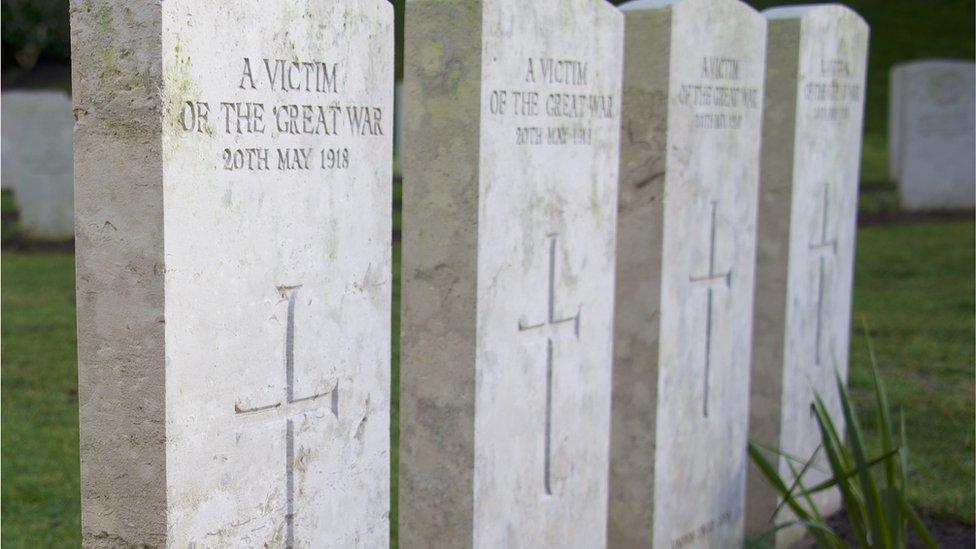
- Published13 November 2016
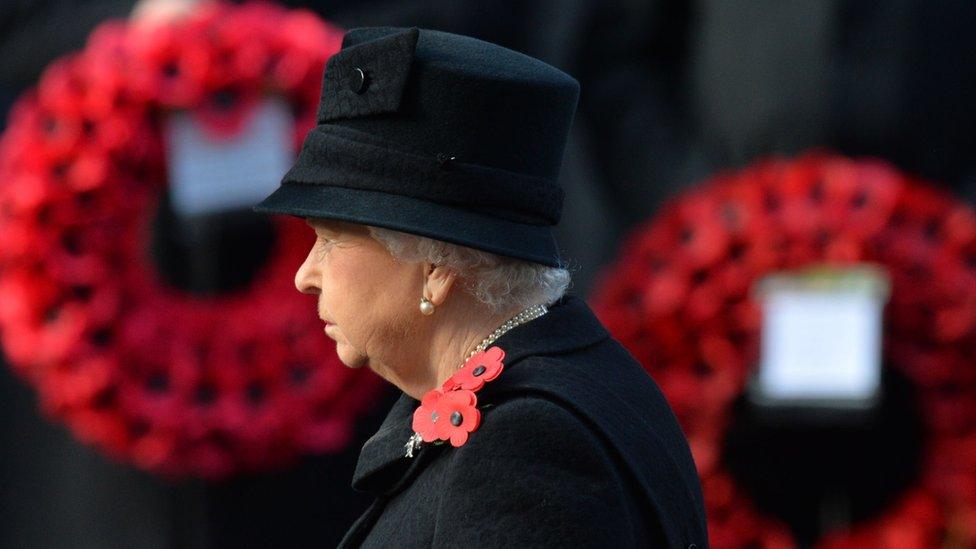
- Published11 November 2016
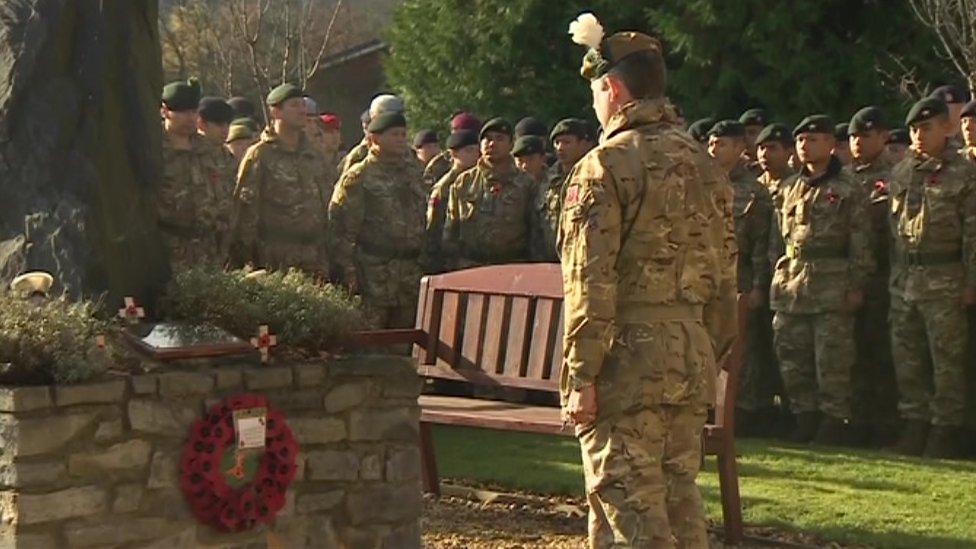
- Published11 November 2016
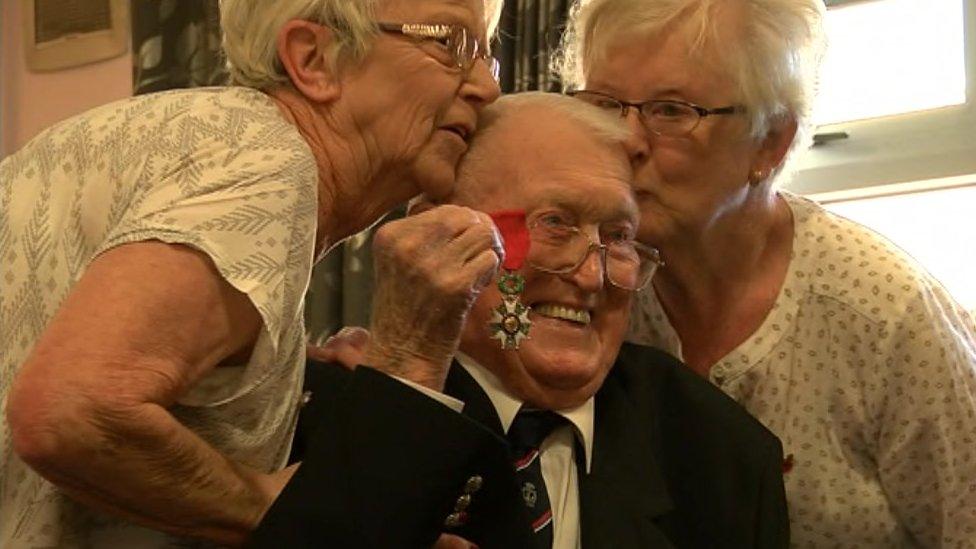
- Published11 November 2016

- Published27 October 2023
